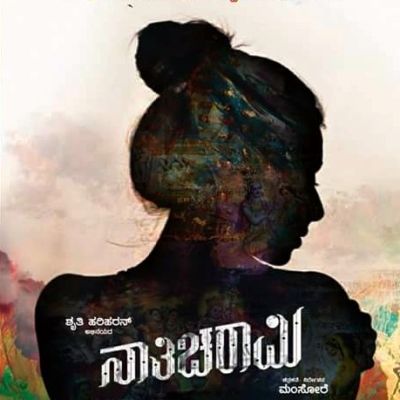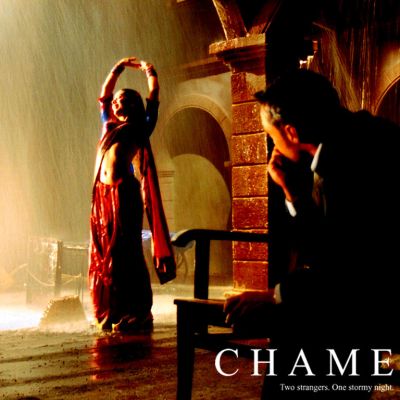class
Language is central to how we think about concepts and ideas, and rights-based language matters enormously when we talk about sexuality. However, much of what many of us know about sexuality-related topics is constructed, explained and communicated solely in English.
एक मानवशास्त्रीय दृष्टिकोण से बॉलीवुड की फ़िल्मों में वर्ग और जेंडर के मुद्दों के चित्रण पर ग़ौर करना केथ्रीजी जैसी फ़िल्मों पर नई आलोचनाओं को बढ़ावा देता है।
He sighs and says – aapko apni dil ki baat bataane ka mann kar raha hai (I want to tell you a secret, a matter of my heart). I nod and encourage him to do so. Aap bura toh nahi maanengi? (You won’t feel offended, will you?) Confused and immensely curious, I assure him that I will not take offense. Asal mein, mera mechanic ka kaam tha aur who theek hi tha lekin mere dost ne auto drivering karke ye seekha ki auto drivering karne se sex karna bahut easy ho jaata hai (In reality, I was working as a mechanic and everything was going fine but one of my friends who became an auto driver soon learned that it was very easy to have sex this way).
Nathicharami takes sexuality and sexual desire away from upper-class, Gucci-clad women and makes its viewers acknowledge its existence in the lives of women (middle-class wives and widows, in the case of this film) who are invisibilised, both in the society they live in and as subjects of popular content.
हमें इस तरह से ढाला गया है कि तथाकथित ‘विकल्प’ जो हमारे संबंधों को परिभाषित करते हैं, वे भी हमारे लिए हुए विकल्प नहीं बल्कि समाज द्वारा सृजित हैं। हालाँकि, जैसा कि हमने देखा है, इन सभी चुनौतियों के बावजूद, महिलाएँ, जब वे खुद को व्यक्तियों के रूप में महत्वपूर्ण मानने लगती हैं, तो वे अपने परिवेश और परिवार के सदस्यों के साथ बातचीत करने की रणनीति तैयार करती हैं।
अधिकांश पूर्णकालिक (और यहाँ तक कि अंशकालिक लोगों के मामले में भी) घरेलू काम के लिए रखी महिलाएँ जो पैसे कमाती हैं वह उनके काम की तुलना में न के बराबर है, और जो फायदे उन्हें दिए जाते हैं (छुट्टियाँ, स्वास्थ्य देखभाल, पेंशन) वो काम पर रखने वाले की उदारता और अधिकतर उनकी मर्ज़ी पर निर्भर है।
Class is a very important factor if you want to associate with “smart” company. Your looks, your fashion sense, your taste in music, your knowledge about international issues and celebrity gossip become very important to belong to “that” bunch of people.
This stigma of caste, class and sexuality is a pervasive amalgamation of socio-cultural mindsets that take root and function in myriad complex ways, and paint working women in broad, sweeping, agency-less brush strokes.
Feminist critiques are often critiques of relationship structures: marriage, the joint and nuclear family, monogamy, and heteronormativity. Patriarchy, fundamentally a system of inheritance, finds a natural home in these structures.
This is why I’ve often wondered: how do feminists imagine and navigate romantic relationships? Do they have to constantly be thinking about and watching out for the many ways in which power, privilege, autonomy and entitlement manifest in their relationships and dating culture? It seems rather unromantic to do so.
What follows, in the short film Chutney, is a conversation – full of eerie, evocative storytelling – which not just sheds light on the class hierarchies in the middle to upper-middle class Indian household, but also the anxieties surrounding sexuality and sexual repression within it.
Honestly, there weren’t any specific rules for the game,
Consent basics, a little humour, but no stigma, no shame.
This article explores how women are constructed as a ‘space’ manufactured by men to seek comfort, but void of having any active agency or participation in that space itself. I seek to bring this out in this article by drawing a parallel between the nineteenth century ‘Bharat Mata’ (Mother India) and the depiction of the twenty-first century ‘heroine’ in Bollywood movies.
Kamal Hassan has come to be quite a literal poster boy of all anti-caste memes lately. To reminisce about the…
Fouzia Azeem, more popularly known as Qandeel Baloch,was called Pakistan’s Kim Kardashian. Madiha Tahir, a journalist and filmmaker who is interviewed in the documentary,questions this comparison. To quote her: “She (Qandeel) is not Kim Kardashian at all. She is not famous for being rich. An upper-class woman would have her class protection and it’s unlikely that an upper-class woman would be supporting her family from these social media videos.”
But TikTok is giving young people – particularly women – in South Asia a new avenue to showcase their talents. While for the majority of women using the app their fame is exclusive to TikTok, an increasing number are able to use it to get paid work. And for many, the platform represents a scarce opportunity for bodily autonomy, and a chance to carve out space as a performer in the face of film and fashion industries that shut them out.















